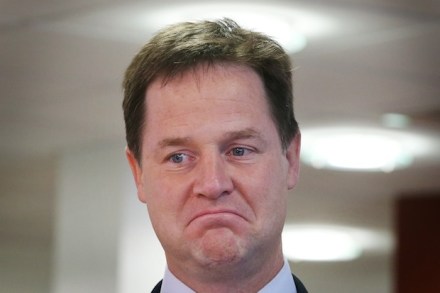‘Now we’re relevant’: Lib Dems see free schools row as ‘win’
The Lib Dems are coming in for a beating this morning from the Tories over Nick Clegg’s decision to go public with his thoughts on the flaws and limitations of the free schools programme. Rachel Sylvester and James Chapman both have very strong briefings from Conservative sources about the Deputy Prime Minister’s comments, while the Lib Dems are annoyed both that there is such a fuss about a new plank in the differentiation strategy and also that they have apparently held this policy for a long time. Sources close to Clegg are highlighting that the Lib Dem spring conference backed a motion supported by the leadership which called for all




















